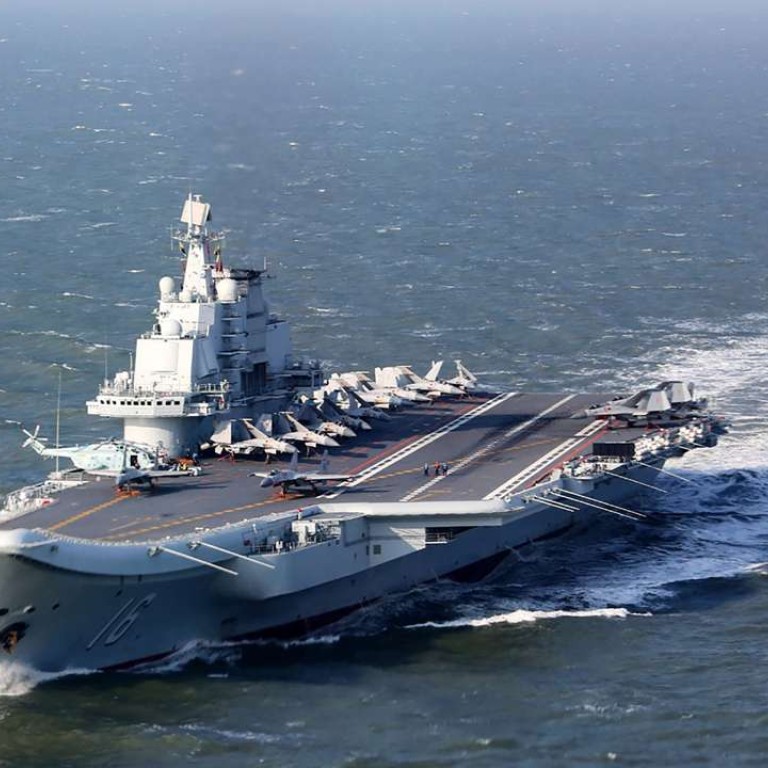
Update | Rising uncertainty as Taipei sends ships, jets after Beijing’s carrier enters Taiwan Strait
Beijing and Taipei ‘unlikely to compromise in next few months’ after Trump takes office
The risk of uncertainty in the Taiwan Strait is rising, both sides of the waterway said after Taipei scrambled navy ships and fighter jets in response to a passage through the area by Beijing’s aircraft carrier.
The mainland’s Liaoning combat group entered the southwest section of Taiwan’s air defence identification zone around 7am on Wednesday and sailed north along the median of the strait, a line set by the United States in the 1950s to delineate areas controlled by Taipei and Beijing.
Taiwan’s defence ministry said the Liaoning completed its passage through the Taiwan Strait at 6.30am on Thursday and continued its way back to its base on the mainland.
A mainland navy spokesman also issued a statement on Thursday morning confirming that the aircraft carrier had completed its passage through the strait. The fleet had been vigilant to ensure safety during the passage, he added.
The carrier’s passage through the strait is one of a series of naval exercises that have unnerved Taiwan, which Beijing claims as a breakaway province, and various neighbours.
Taipei responded by sending navy vessels and jets to “surveil and control” the passage of mainland ships through the strait, Taiwan’s defence ministry said.
Also on Wednesday, Chang Hsiao-yueh, head of Taiwan’s Mainland Affairs Council, said this year would be a challenging one for ties with the mainland. Taipei would closely monitor the potential impact of Donald Trump’s inauguration as US president and the 19th Communist Party Congress on cross-strait relations, Chang said.
“I want to emphasise our government has sufficient capacity to protect our national security. It’s not necessary to overly panic,” he said. “Any threats would not benefit cross-strait ties.”
In Beijing, Taiwan Affairs Office spokesman Ma Xiaoguang also pointed to more uncertainties ahead for cross-strait ties.
But other officials downplayed the Liaoning’s recent drills.
Vice-foreign minister Liu Zhenmin said the aircraft carrier had long conducted such drills.
“The Taiwan Strait is an international waterway shared by mainland China and Taiwan, so the Liaoning’s transit through the strait after exercises is normal and will not affect cross-strait relations,” Liu said.
He said the People’s Liberation Army Navy conducted exercises at this time every year.
Liu also said the drills were safe and did not affect the security of any countries in the region.
Analysts said more confrontation was expected in the Taiwan Strait given Taiwanese President Tsai Ing-wen’s reluctance to acknowledge the 1992 consensus and Trump’s unpredictability.
Huang Kwei-bo, a diplomacy specialist from National Chengchi University in Taipei, said Beijing and Taipei were unlikely to make any compromises within the next four to five months.
“Trump has also added new uncertainties to cross-strait relations,” Huang said.
Hu Lingwei, a Taiwan affairs expert from the Shanghai Institute of East Asian Studies, said the aircraft carrier’s passage was more than a military.
“The Liaoning’s transit through the Taiwan Strait is a signal from Beijing to Taipei and the world at large that the mainland will never give up unifying Taiwan by force, although this is Beijing’s last resort,” Hu said.

